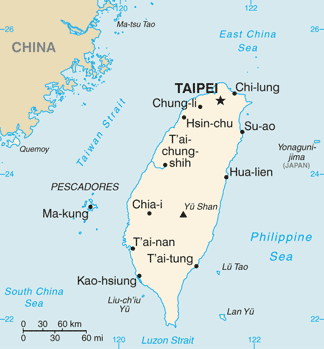The Taiwan Centers for Disease Control (CDC) is reporting increasing numbers of two viral diseases–enterovirus and hepatitis A, prompting calls for preventive measures.

According to the surveillance data compiled by Taiwan CDC, coxsackie A virus is currently the dominant strains circulating in the community. Cases of enterovirus 71 (EV 71) infection have also continued to occur and most of them are mild cases.
During the past week, health officials report 17,000 ER and outpatient visits for enterovirus infections, which include seven additional EV 71 cases. Thus far this year, as of May 17, 31 cases of EV71 infection, including 25 mild cases, 3 suspected severe cases, and 3 severe cases, have been confirmed in Taiwan.
Taiwan is not alone as several Asian countries are reporting increases in enterovirus to include China, Vietnam, South Korea, Macau and Singapore.
Taiwan CDC reminds that frequent hand washing is the primary way to prevent enterovirus infection. Adults who return home from work are advised to change clothes and wash hands with soap and water before coming into contact with children.
In addition, please make sure children wash their hands with soap and water thoroughly when returning home and before having their meals in order to prevent infection. When a child in a household is diagnosed with enterovirus infection, parents and child caregivers are urged to refrain the sick child from close contact with other children to prevent further spread of the disease.
Taiwan is also seeing a record number of hepatitis A infections year to date. According to the surveillance data collected by Taiwan CDC, thus far this year, as of May 15, 2016, a total of 275 cases of hepatitis A have been reported in Taiwan, reaching a record high in years.
50% of the 275 cases are also infected with HIV.
The Taiwan Centers for Disease Control urges at-risk individuals, including restaurant workers, healthcare workers, caretakers of infants and children, people with chronic liver disease, hemophilia, or those who have had liver transplants, people who practice unsafe sex, people who inject drugs, and those planning to visit areas affected by hepatitis A, who do not have hepatitis A antibodies are urged to receive 2 doses of self-paid hepatitis A vaccine in order to lower the risk of infection.
In response to the increasing number of HIV and hepatitis A co-infection, Taiwan CDC plans to expand the target population for the free hepatitis A vaccination pilot program.
Related:


One thought on “Taiwan reports increases in enterovirus, hepatitis A infections”